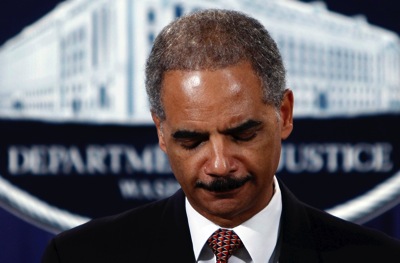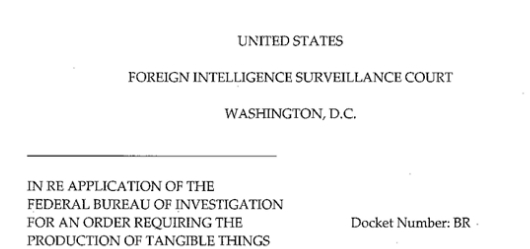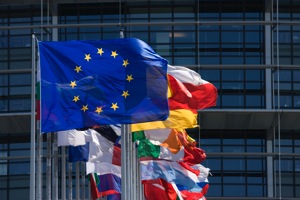 In a unanimous decision, the Supreme Court ruled that police must obtain a warrant before searching suspect’s cellphone. Before this, cellphones were treated just like anything else a suspect might carry, including wallet, keys, address book, or various other “pocket litter”.
In a unanimous decision, the Supreme Court ruled that police must obtain a warrant before searching suspect’s cellphone. Before this, cellphones were treated just like anything else a suspect might carry, including wallet, keys, address book, or various other “pocket litter”.
Police are generally allowed to search suspects for weapons and to prevent the distraction of evidence. Because of the massive amount of storage on a modern smartphone, and its direct connection into so many other stores of data and communications, the court felt that the contents of these devices was qualitatively different and deserving of greater protection.
It is important to remember that the police can still take the phone, and that they can then get a warrant to search it if there is probable cause. They are simply prevented from searching it without the warrant, possibly in the hope (but not expectation) of finding evidence.
This decision may lay the groundwork for according similar protections to cloud stored data, which once would have been kept in the home in hard copy. Law enforcement officials claim that technology is making life easier for criminals and harder for law enforcement. I find that hard to believe and have not seen any really good studies of the matter. If you have, please let me know!
It strikes me that the routine preservation of emails and other communications, along with the massive use of server logged communications from text messages to social media, actually makes things much easier for law enforcement on the whole.
The fact that the decision was unanimous suggests that we may be entering a period of re-evaluating outdated precedents from the pre-internet era.
Some key quotes from the decision:
- Regarding treating phones like other pocket litter - "That is like saying a ride on horseback is materially indistinguishable from a flight to the moon,”
- On the impact on law enforcement - "Privacy comes at a cost.”
- "Cell phones differ in both a quantitative and a qualita- tive sense from other objects that might be kept on an arrestee’s person. The term “cell phone” is itself mislead- ing shorthand; many of these devices are in fact minicom- puters that also happen to have the capacity to be used as a telephone. They could just as easily be called cameras, video players, rolodexes, calendars, tape recorders, librar- ies, diaries, albums, televisions, maps, or newspapers.”
- "The scope of the privacy interests at stake is further com- plicated by the fact that the data viewed on many modern cell phones may in fact be stored on a remote server. Thus, a search may extend well beyond papers and effects in the physical proximity of an ar- restee, a concern that the United States recognizes but cannot defini- tively foreclose.”
- "Our answer to the question of what police must do before searching a cellphone seized incident to an arrest is accordingly simple—get a warrant,"
Some Excellent Articles for further reading:
With cellphone search ruling, Supreme Court draws a stark line between digital and physical searches - The Washington Post
Police Need a Warrant to Search Your Cellphone, Supreme Court Says | Re/code
Supreme Court: Police Need Warrants to Search Cellphone Data - WSJ
Note: In the picture above, the policeman is actually just using his own cellphone.
Lance Cottrell is the Founder and Chief Scientist of Anonymizer. Follow me on Facebook, Twitter, and Google+.
 In the article below Attorney General Eric Holder said "“It is fully possible to permit law enforcement to do its job while still adequately protecting personal privacy”
In the article below Attorney General Eric Holder said "“It is fully possible to permit law enforcement to do its job while still adequately protecting personal privacy”



 In a unanimous decision, the Supreme Court ruled that police must obtain a warrant before searching suspect’s cellphone. Before this, cellphones were treated just like anything else a suspect might carry, including wallet, keys, address book, or various other “pocket litter”.
In a unanimous decision, the Supreme Court ruled that police must obtain a warrant before searching suspect’s cellphone. Before this, cellphones were treated just like anything else a suspect might carry, including wallet, keys, address book, or various other “pocket litter”. The Massachusetts High Court recently ruled that a suspect can be compelled to decrypt disks, files, and devices which have been seized by law enforcement. The crux of the question before the court was whether compelling the password for decryption is forbidden by the Fifth Amendment protection against self incrimination.
The Massachusetts High Court recently ruled that a suspect can be compelled to decrypt disks, files, and devices which have been seized by law enforcement. The crux of the question before the court was whether compelling the password for decryption is forbidden by the Fifth Amendment protection against self incrimination.

